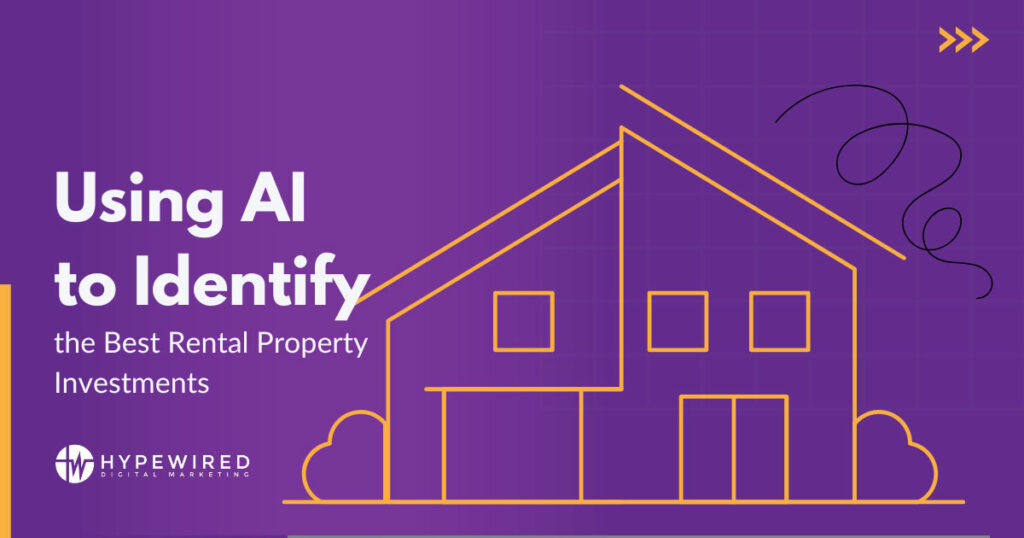Rental property investments are becoming increasingly popular in generating passive income. However, identifying properties that can yield the highest returns is complex and requires careful consideration of location, infrastructure, demographics, and market trends. AI technology has emerged as an invaluable tool for real estate investors looking to find the best rental opportunities in any given area. This article examines how AI—which is becoming as integral to the industry as search engine optimization for real estate—can identify profitable rental property investments quickly and accurately using data-driven insights.
Understanding Artificial Intelligence
Artificial intelligence (AI) in rental property investments has become increasingly popular due to its ability to provide insightful and accurate analysis. Four types of AI are relevant to investors:
- Machine learning focuses on making programs that can make decisions independently.
- Deep learning uses neural networks to create models that can solve complex problems.
- Natural language processing helps machines understand written or spoken language more accurately.
- Data analysis helps investors make decisions about their investments based on several factors.
AI offers an opportunity for those who wish to remain ahead of the curve when it comes to investing in rental properties, enabling them to assess potential risks while also taking advantage of promising opportunities. Individuals have access to detailed information regarding past performance trends and current market conditions, providing them with a clearer insight into the best areas for investment prospects.
Factors to Consider When Investing in Rental Properties
When investing in rental properties, it is essential to consider factors such as the current state of the rental market, rental prices, and trends. AI technology can help identify potential investment locations likely to have a higher return on investment. Investors can use data-driven insights to optimize their investments and improve profitability.
AI algorithms can analyze various aspects of the rental property market, such as local rent regulations, tenant rights, vacancy rates, and more, to help investors make better decisions and identify emerging rental markets and high-return opportunities. Investors must consider macroeconomic conditions, tax implications, and local ordinances when making an investment decision.
Benefits of Utilizing AI for Property Investment Strategies
AI-based strategies are designed to optimize data analysis, enabling investors to identify the best real estate opportunities quickly and accurately. By leveraging artificial intelligence technologies, investors can reduce risk exposure while maximizing return on investments. AI technology also provides an effective platform for analyzing profitability and longevity, allowing investors to make informed decisions about when to enter or exit markets.
In addition, machine learning algorithms allow investors to develop customized portfolios based on individual investor preferences and goals. Automated systems enable continual adjustment of asset allocations as market conditions change over time, allowing for more efficiency throughout phases of the market cycle.
Potential Challenges & Risks of AI-Based Investment Strategies
AI-based investment strategies present unique challenges and risks that property investors must be aware of. Like any other form of investing, the potential to lose money is a reality; however, AI-based investments can magnify these risks due to their automation.
The first risk in using AI-based rental investments relates to data accuracy and availability. As most AI systems rely on historical data for predictions, this data must be accurate and up-to-date to provide reliable results. Additionally, there won’t always be enough historical or applicable data for predictive models. Without high-quality input data, the resulting output from an AI system will likely be unreliable or inaccurate.
Another challenge those looking into AI-driven investments face is understanding how different algorithms work together within a given model. Different algorithms have varying levels of complexity, making them difficult to interpret or understand fully without expert knowledge. Furthermore, investors could suffer significant financial losses relying on such technology if something goes wrong with an algorithm or its implementation.
Developing an Effective AI-Based Investment Plan
Developing an effective AI-based investment plan requires careful consideration of the potential risks and rewards associated with property investments. There are four steps to developing a plan:
- Identify business objectives and financial goals: This includes determining what type of returns are expected and any other conditions, such as risk tolerance or liquidity requirements.
- Establish data sources: This could include market trends, historical performance, geographic location, tenant information, and more, all of which need to be collected and organized into a usable format before the AI system can analyze them.
- Develop algorithms: Developers must develop algorithms to make decisions based on relevant data and account for external factors such as economic changes and political events that can affect property values.
- Test and refine: Algorithms must be tested against real-world scenarios to verify accuracy and effectiveness, and any discrepancies or flaws should be addressed through further refining.
To maximize returns, an investor must use predictive analytics and machine learning algorithms to identify profitable opportunities in the real estate market. AI can also streamline leasing and maintenance activities for rental properties, helping investors save time and money while maximizing their return on investment.
Advanced tools like natural language processing (NLP) enable investors to gain insights from unstructured text sources while automating tedious processes. Integrating AI techniques into existing asset management systems ensures that all relevant information is collected and analyzed quickly, allowing property investors to make sound decisions based on accurate data.
FAQs About AI for Rental Property Investments
What are the different types of AI available for rental property investments?
In addition to machine learning and deep learning, as mentioned above, there are also:
- Predictive Analytics: Utilizes data-driven models to anticipate future events and generate forecasts about movements in the real estate market
- Natural Language Processing (NLP): Utilizes natural language processing techniques to extract meaningful information from documents like contracts or news stories related to a particular area where someone might want to invest in real estate
- Automated Investing: Takes all of these technologies even further using advanced algorithms to build portfolios tailored specifically for individual investor needs
How do I know if AI can help my rental property investment strategies?
To determine whether AI will benefit their rental property investment strategies, investors should assess what advantages it offers compared to traditional methods of analyzing data and making decisions. Some key points should be considered:
- Does the AI platform offer up-to-date analysis and accurate predictions?
- Is there a cost associated with using an AI platform?
- How user-friendly is the platform? Does it have tutorials or other resources to help users understand its features?
- What type of customer support does the platform offer?
Investors should consider factors such as current market conditions, availability of desirable properties, and economic forecasts to determine if incorporating AI into their decision-making process can lead to greater success.
How much does an AI-based investment strategy cost?
The cost of an AI-based investment strategy depends on several factors, including the size and scope of the rental property investments. To evaluate the potential costs associated with an AI-based approach to investing in rental properties, consider several variables, such as research needs and data acquisition costs. Additionally, one must factor in any maintenance or ongoing training fees required for an AI system.
AI: Revolutionizing Rental Property Investments
Using AI for rental property investments can be a powerful tool in helping to identify the best investment opportunities. It is possible to access insights that may not have been available otherwise and make decisions with greater accuracy and confidence. However, certain risks associated with this approach must be considered before investing. There’s rarely reward without risk, and those who choose to pursue an AI-based investment plan should understand the potential risks involved and prepare accordingly.

 January 11, 2023
January 11, 2023



